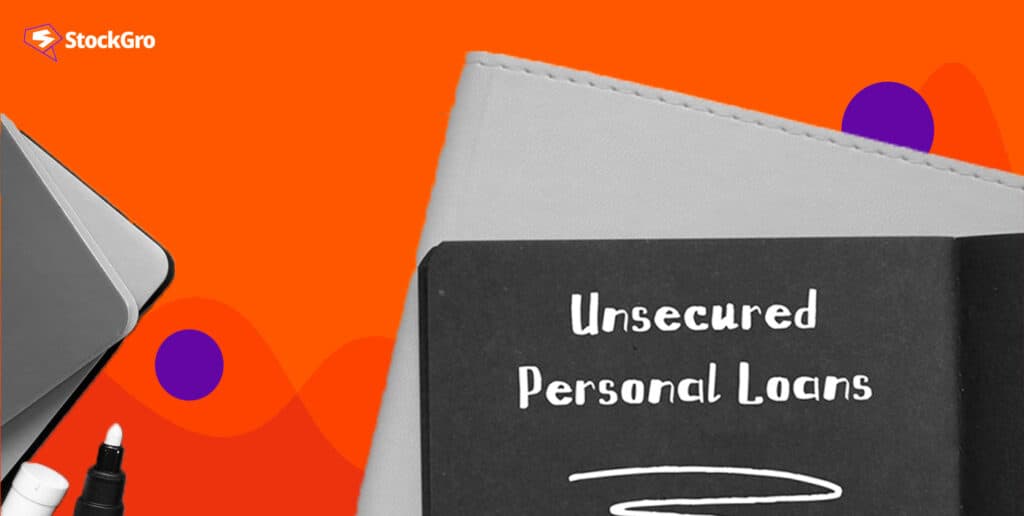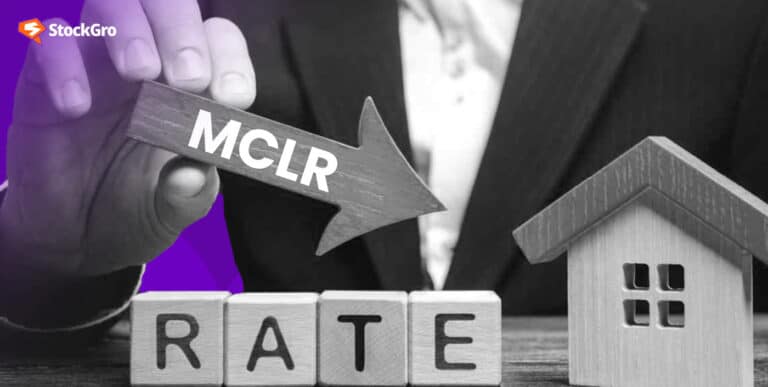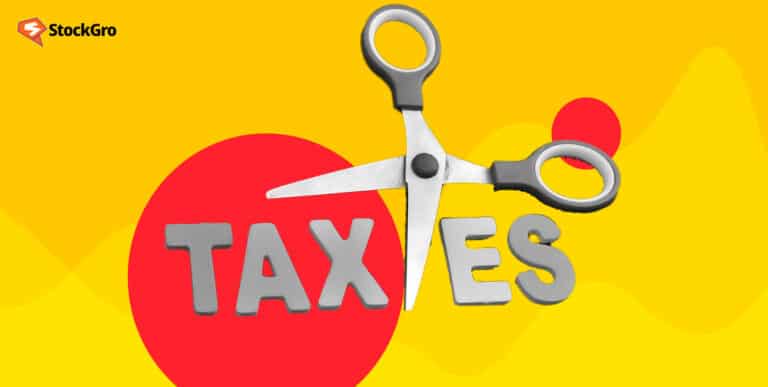
What is one thing that keeps people away from debt? For some, it is the periodic interest payments. For others, it is just the burden of owing money to lenders. And, for a few others, it is the risk of pledging an asset to take loans.
But what if you can avail loans without pledging assets? Is that really a good option? Does it have risks, too? Let’s find out in today’s article, where we discuss the nature of unsecured loans.
What is an unsecured loan?
As the term suggests, an unsecured loan is not secured by any collateral. It is where borrowers avail debt facilities without pledging assets or using a guarantor to assure repayment.
Also read: Insert <what are the different types personal loans India>
How do unsecured loans work?
In the case of unsecured loans, lenders such as banks and Non-Banking Financial Companies (NBFCs) provide loans to borrowers without the backing of assets.
In a usual scenario where financial institutions lend secured loans, they take collateral from borrowers. These collateral assets act as a guarantee for loan repayments. In the case of defaults, the borrower seizes the collateral to recover the loan amount.
However, since unsecured loans work without collateral, the borrower’s creditworthiness and income source become the main factors influencing the approval of such loans. In the case of borrowers defaulting on interest payments or repayment of principal, the credit score is affected. In severe cases where the default is high, lenders even take legal actions to recover the loan amount from borrowers.
It is important to note that the deduction of TDS on unsecured loans does not apply to individuals. Section 194A of the Income Tax Act suggests deducting TDS on interest on unsecured loans, however, this does not apply to those entities that are not liable for audits.
Types of unsecured loans
- Personal loan – This is a loan that can used for different purposes. Lenders usually offer such loans to borrowers with good credit scores and ongoing employment. The terms of the loan vary from one lender to another and are based on the borrower’s financial position, too.
- Credit cards – Credit cards are a form of unsecured loan, too, as they allow the user to spend money they do not own. Since credit cards do not have a backing, they fall under the unsecured category. The card’s limit and features depend on the user’s financial stability.
- Payday loans – These are short-term loans that help borrowers meet financial requirements until their upcoming payday. It is a stop-gap financial arrangement until the borrower receives salary or wages.
There are various other types to meet different requirements, such as business loans, medical loans, etc.
Also read: Insert <what are the legal consequences personal loan default India>
Benefits of unsecured loans
- No collateral – The primary benefit of an unsecured loan is its feature of lending without collateral. This makes loans easily accessible to all borrowers since it does not require them to own assets.
- Faster approval – Unsecured loan approvals happen faster, as it eliminates the whole process of valuing the collateral. Hence, unsecured loans are known for quick approval and disbursals.
- No restriction on the usage of funds – Funds borrowed through the unsecured loan facility do not restrict borrowers on how the funds can be used. Unlike home loans which must be used only for constructing houses, unsecured loans give borrowers the freedom to utilise these funds across different purposes.
- Easy documentation – Since unsecured loans only require the borrower’s credit, income and employment history, the documentation process is simple and easy.
Disadvantages of unsecured loans
- High interest rates – Unsecured loans work without collateral. Hence, these loans come with higher interest rates to recover funds faster. This puts undue pressure on borrowers to arrange interest payments periodically, which may lead to financial instability.
- Restriction on loan amounts – The maximum amount of loans that can be provided under this category is limited since they are unsecured. So, it may be insufficient to meet the borrower’s requirement, leading to multiple borrowings.
- Short-term loans – Unsecured loans are usually given for shorter terms. So, there is a high pressure of repaying the debt faster as compared to secured loans.
How do unsecured loans help MSMEs?
MSME stands for Micro, Small and Medium Enterprises. These are enterprises with low capital and turnover. However, these businesses make up about 1/3rd of the country’s GDP. Hence, the development of such industries is essential for the overall growth of the economy.
Due to the limited availability of funds and assets, availing of secured loans becomes a challenge for MSMEs. Hence, unsecured loans are more favourable. These enterprises use the loan’s funds for a variety of purposes, like:
- Arranging working capital requirements
- Hiring additional staff
- Expanding the business and operations
- For long-term capital expenditure
Also read:Debt management: Advanced strategies for paying off debt quickly
Bottomline
An unsecured loan is a beneficial option for those who do not have the facility to pledge assets. It is also a significant choice for MSMEs and other businesses to avail funds easily. However, it is important for borrowers to avoid excessive borrowing to avoid falling into debt traps.

